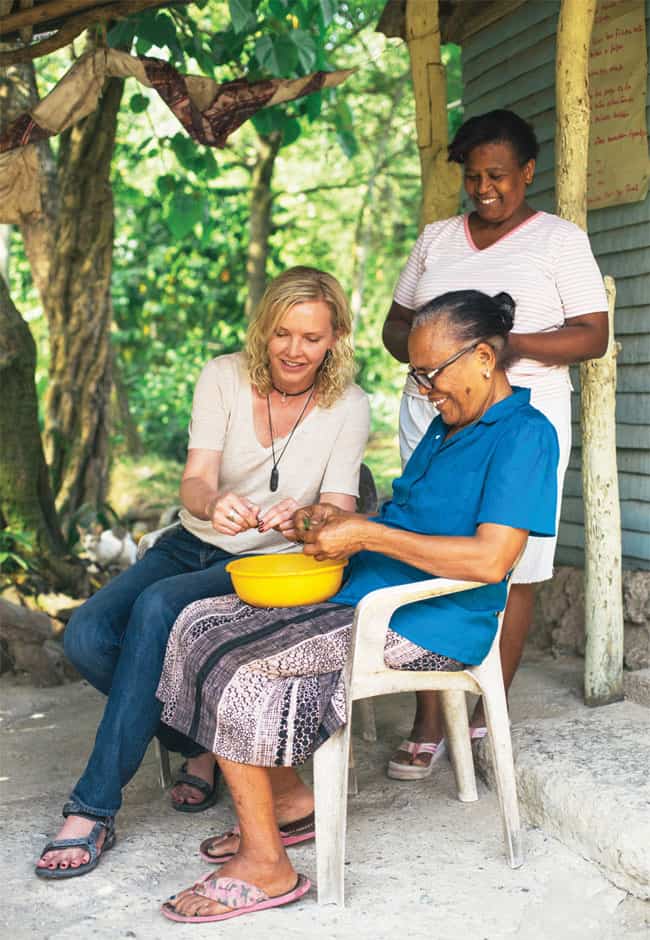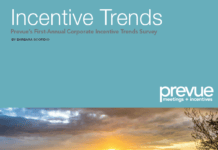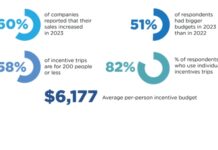
As one of the fastest growing trends in travel, voluntourism, or social impact travel, has become a viable option for groups seeking immersive, hyperlocal experiences in exotic destinations that provide meaningful takeaways and givebacks. Despite an overall lower interest in civic issues when compared to other generations, the simple desire to make the world better has placed millennials at the helm of this $2 billion industry—just in time for one of the most enticing travel opportunities in decades.
As a gem of the Caribbean, Cuba is a window into the past and a threshold to the future. In short, “Cuba is a place where time has stood still,” says Tara Russell, president of Carnival Corporation’s new social impact travel cruise line, Fathom. “A trip to Cuba may be the shortest distance to travel to enter an entirely different world.”
After kicking off the brand this past April with a maiden voyage to the Dominican Republic (DR), Fathom has moved on to Cuba, with plans to alternate between the DR and Cuba beginning in 2016 aboard the 710-passenger Adonia. Fathom’s onboard cultural and educational programming will trickle into three different Cuban ports—with eight more in the works—where Russell envisions up to eight hours of permitted activity daily for 700+ passengers will foster meaningful exchanges and personal transformation.
“Fathom is just beginning its relationship with Cuba, so it will spend a good bit of time learning, immersing and listening to Cuban officials and the Cuban people to understand what it can do to have the greatest social impact within this society.”
To authenticate the Cuban experience back onboard, the 7-day cruise from Miami will include an orientation to the country’s history, customs and culture, including basic Spanish lessons and culinary immersion. At a time when demand for local experiences and fine-tuning multigenerational programming is causing more than a few head scratches from planners, Russell says Fathom’s immersive, personal enrichment vibe has already garnered “significant interest in MICE-related bookings.”
At the Threshold
Although Cuba has been promoting its tourism product for years with steady increases in arrivals from Canada, Europe, Latin America and the Caribbean over the past decade, opening the door to Americans is expected to significantly move the economic dial for neighboring Caribbean islands. The arrival of cruise lines like Fathom can have a positive “multiplier effect” across Cuba’s economic sector, says Carlisle Richardson, economic affairs officer for the United Nations, “in terms of purchasing local products and stimulating activity in education and innovation—it could be a genuine and durable partner in Cuba’s development.”
One challenge Cuba faces in the quest to capture American groups is maintaining its sustainable edge with the sudden influx of US arrivals, a task Richardson says will be difficult, but not impossible. “Carnival has had experience in other Caribbean countries which also have a disparity between their economies and that of the US—investments into local cultural enterprises, agriculture, businesses and entertainment will help to ensure that the culture remains authentic [and not marginalized]. These are some of the best ways to promote the giveback concept in Cuba.”
For its part, Fathom will foster people-to-people experiences that include a variety of cultural, artistic, educational and humanitarian group activities. The point, Russell says, is to connect with and learn from the “passionate and welcoming people” who call the island home.










